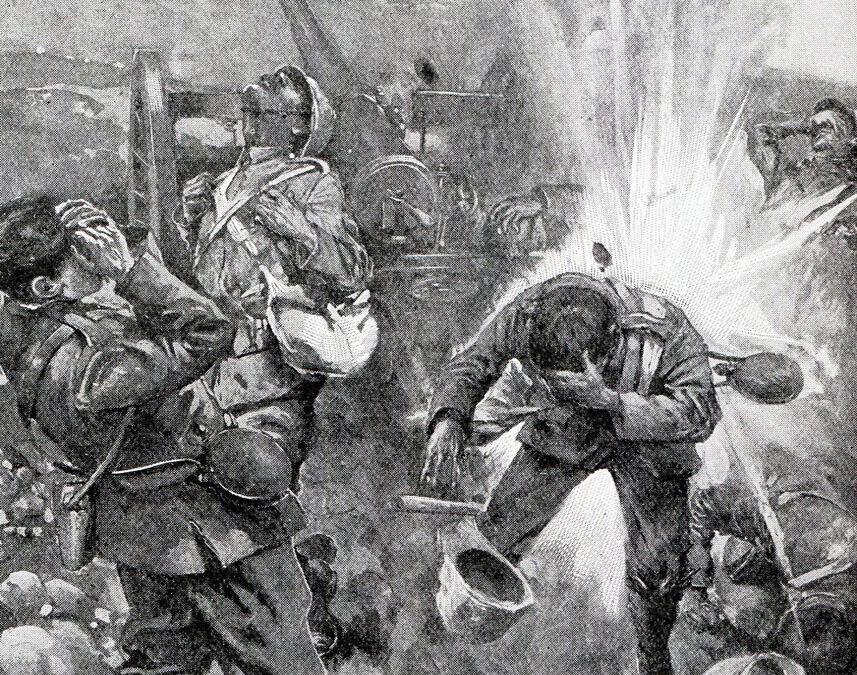Doyle was knighted for his service during the Boer War (1899-1902), in which he served as a medical doctor. Much of Doyle’s The Great Boer War was written in hospital tents where he treated the wounded and diseased. The memories are a nationalistic view of a war unpopular in Britain, making the case that war is cruel.
Describing an English militia’s defeat at Vaalkranz, Doyle clarifies that war is no picnic: “In the middle of the night, he was upon them with a hissing sleet of bullets. At the first dawn, the guns opened, and the shells began to burst among them. It was a horrible ordeal for raw troops. The men were miners and agricultural labourers, who had never seen more bloodshed than a cut finger in their lives. They had been four months in the country, but their life had been a picnic, as the luxury of their baggage shows. Now in an instant the picnic was ended, and in the grey cold dawn war was upon them — grim war with the whine of bullets, the screams of pain, the crash of shell, the horrible rending and riving of body and limb.”
Featured Image
Oscar Eckhartd’s The Battle of al Kranz” at British battles.com
See Arthur Conan Doyle. The Great Boer War. London: Smith and Elder, 1900;

